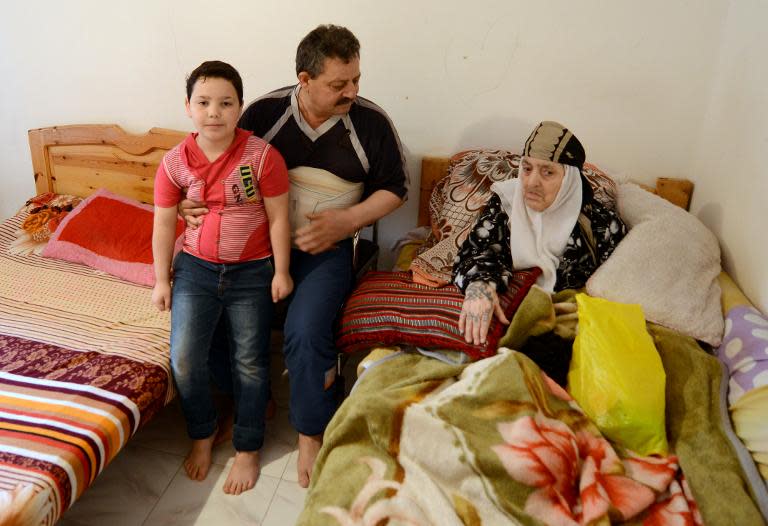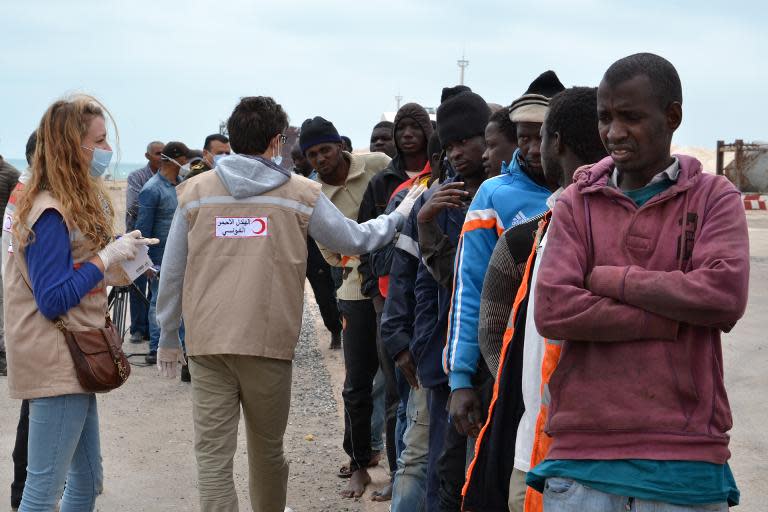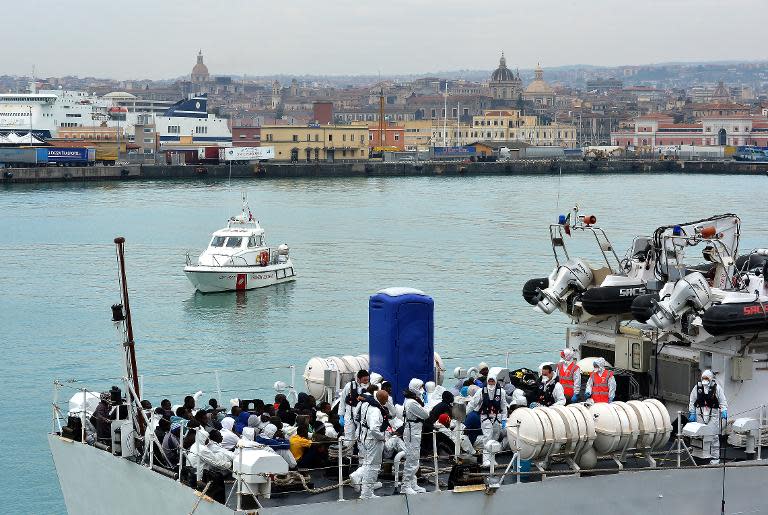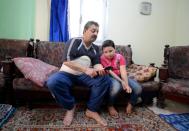For desperate migrants, shipwrecks a risk worth taking
Syrian refugee Fares al-Bashawat knows his two daughters may drown trying to cross the Mediterranean to Europe. But he says leaving them behind would be an even worse fate. His wife and two other daughters already reached Italy by boat, days after a shipwreck killed hundreds of other migrants. Bashawat, who says he was shot and tortured in Syria before the family escaped to Egypt, is planning to send two more of his children from the port city of Alexandria. "I'd rather my daughters have an honourable death on the high seas than leave them behind," he says. Bashawat shows his 10-year-old son Nemr a photograph of the boy's mother and two of his sisters dining out in a restaurant in Italy. They survived a voyage that many hundreds did not. Last Sunday, at least 700 people drowned off the Libyan coast in the Mediterranean Sea's worst migrant disaster. "At first I was against this kind of voyage, but there was no other option," explains Bashawat, 55, who says his family owned a restaurant chain and a resort in Syria. Last weekend's disaster triggered crisis talks in Brussels on Thursday, at which EU leaders agreed to triple the funding for search and rescue operations. The tragedy has not deterred Bashawat and hundreds of refugees and potential migrants from taking the risk. He hopes his son Nemr will be eligible for the UN High Commissioner for Refugees reunion programme. His two daughters still in Egypt, both adults, are not. Bashawat says his family lived in a two-storey villa near Damascus but he no longer has money "even to buy medicines". He shows scars on his stomach where he says he was shot by "a Shiite militia" in Syria. - Free seats for recruiters - Human rights activists say refugees such as Bashawat use intermediaries to contact smugglers who transport them on decrepit boats towards Europe. One such intermediary, Abu Barra, says he secured free seats for his wife and four children to Italy last year after enlisting 10 refugees who travelled on the same vessel, each paying $2,200 (about 2,000 euros). "I tried to leave with my family 11 times but failed, and I was detained twice," Abu Barra says. He encountered a contractor who suggested that he recruit 10 migrants who wanted to travel illegally to Europe -- in return for free seats for his wife and children. "I got them 10 people and sent my family with them," says Abu Barra, adding that the group was first taken from Alexandria on a small boat to another vessel and finally loaded onto a larger ship that dropped them off near the Italian coast. "The final drop-off is usually done by those who want to fish in international waters. They take groups of 300 people or so and make the journey once a fortnight." Activists allege that Abu Barra has himself become a "contractor", something the 40-year-old Syrian denies, insisting that he wants only to be united with his family. Smugglers use contractors who are reached through social networks on the Internet such as Facebook under fictitious names like "El-Captain" and "El-Doctor". - Peak season for crossings - Activist Ahmad El-Chazli of the Egyptian Initiative of Personal Rights group says that as summer arrives, more migrants are expected to try to cross the Mediterranean from Egypt. The UNHCR says around 219,000 people crossed the Mediterranean and 3,500 died in 2014, and so far in 2015 more than 35,000 asylum seekers and migrants have reached southern Europe. Chazli says migrants are increasingly working with Syrian contractors whom they trust because of "their experience, better networks and ability to reach the destination". Bashawat sees the dangerous sea route as the way for his 17-strong family scattered across Syria, Egypt and Europe to be together again. "Our dream is to be united again under one roof," he says in his rented apartment as Nemr looks at the picture of his mother and sisters in their new life.











